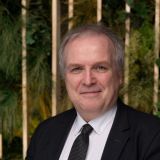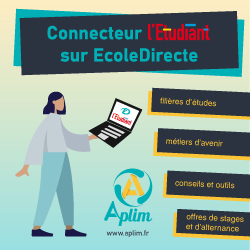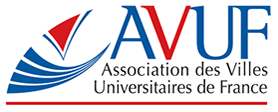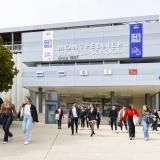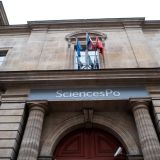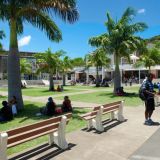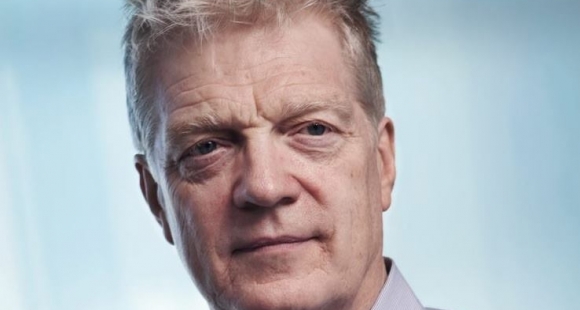
The key to success is to combine "the things we love to do and the things we are good at". All right. However, you more often take your examples among the artists and entrepreneurs than among the plumbers and supermarket cashiers.
The Element is where talent meets passion. We all have our own unique talents and passions. I do give some examples of artists and entrepreneurs. But I also talk about scientists and teachers, cooks and community workers, cleaners and parents. There aren’t any specific roles or activities that appeal to everyone equally. Something that I might love to do, you might find boring and unfulfilling, and vice versa. Finding your Element is about finding what works best for you. It’s about finding yourself.
People develop themselves "against" (against their teachers, against the status quo, against authority figures...) Could we say that all the artists and entrepreneurs you mention also made themselves against adversity ?
Not everyone has to struggle to be in their Element, but some people do. They may have to push back against their practical circumstances or culture, or against the attitudes of their parents, teachers or other authority figures. They may feel held back by the expectations of their friends, lovers or spouses. We’re all affected by other people’s opinions of us and it can be very difficult to create new ways of being and of being seen. That’s why I talk so much in The Element about the obstacles you may have to face and how people in different circumstances have dealt with them.
You say that the child has to find, as early as possible, his calling, a purpose... How may school contribute to that ?
You can find your Element at any age, not only when you’re young. And we’re not confined to one Element for life. It’s perfectly usual for passions and talents to evolve as we mature and discover more about ourselves and the world around us. Formal education often gets in the way because it is typically focussed on a very narrow idea of talent and doesn’t encourage us to explore our personal interests. One way that schools could help is by providing a broad curriculum in the early years, so that children have more opportunities to discover their talents, and by allowing them in later years to specialise more in areas they especially enjoy.
Formal education often gets in the way because it is typically focussed on a very narrow idea of talent
Going back to basics doesn’t make any sense. But what can be done when a large proportion of the pupils don’t master those basics ?
By "the basics" people normally mean mathematics and literacy. I’m not saying that students shouldn’t master these disciplines. I think they should. But they’re much more likely to do so if they’re interested and engaged in education and that’s one of my arguments for more creative approaches to treaching and learning. But the basics are much more than this. They are the fundamental purposes that underpin education: economic, cultural, social and personal. To meet these purposes schools need a broad and balanced approach to education that includes not only mathematics and literacy but the arts, sciences, humanities and physical education. This is one of the basic implications of The Element.
You say that school has pushed aside "the heart, the body, the senses and a good portion of our actual brains". In practical terms, how could we take them back ?
There are three core processes in education: the curriculum, which is what we want students should learn; teaching, which is how we help them to do it; and assessment, which is how we judge their progress. Current forms of education are based on a narrow view of academic ability and they result in limited curricula, restricted styles of teaching and impersonal forms assessment that are dominated by raw numbers and grades. Education should engage the whole student, intellectually, emotionally, spiritually and physically. To do that in practice we need to transform curricula, teaching and assessment. In The Element I give various examples of how this is being done.
Education should engage the whole student, intellectually, emotionally, spiritually and physically
We are going the wrong way altogether: "jobs and competitiveness depend absolutely on the very qualities that school systems are being forced to tamp down". Could you be more specific ?
One of the purposes of education is economic. One of the problem is that current systems of education are based on an outdated view of economics and business.
In 2010, IBM published "Capitalising on Complexity", a study that was based on personal interviews with 1.500 CEOS from companies of all sizes across 60 countries, representing 33 industries. The report concluded that two of the most important challenges that companies face are a) adapting to rapid change and b) developing a culture of innovation. For these they need people who can think creatively, work well in teams and respond quickly to new opportunities. Typically, education does not prepare students for these roles in working life. On the contrary, it tends to promote compliance and to suppress creativity.
"One of the enemies of creativity is common sense". Yet some basic rules have to be taught. Could you expect that a child, by doubting, will rebuild the principles that underlie the multiplication tables ?
Of course not and I don’t make this argument in the Element. Being creative doesn’t mean breaking all rules the sake of it. Often, creativity is encouraged by boundaries and restrictions – think of the rules of sports and games. But sometimes innovation does come from challenging accepted ways of thinking and behaving. That’s how new games come about.
Human culture evolves precisely because of our ability to discover to new ways of doing things. Getting the balance right between tradition and imnnovation, convention and creativity is at the heart of good education and of creativity.
Intelligence is brought down to verbal and mathematical reasoning. This dates back to Greek antiquity, and was reinforced by the Industrial Revolution and the Age of Enlightenment. Pretty heavy legacy. How can we break with twenty centuries of history ?
I don’t say that intelligence has been reduced to verbal and mathematical reasoning. These are essential skills and they can be used in highly creative ways. But there’s much more to human intelligence than these, which is why human culture is so various and fascinating.
For historical reasons, education has become pre-occupied with certain types of 'academic' ability – with certain uses of verbal and mathematical reasoning. I believe this is already changing. In the culture at large there is a growing understanding of the range and vitality of intelligence. Education is changing too. Our task is to promote and accelerate these changes.
Getting the balance right between tradition and imnnovation, convention and creativity is at the heart of good education and of creativity
The influence of peers is stronger than that of parents. This won’t get any better with social networks, "like" culture, peer groups.
Yes, the evidence is that young people can be influenced more by their friends and peer groups than by their parents. Social networking sites can increase this influence and that they can have negative as well as positive effects. We should remember though that peer influence is not always bad and parental influence is not always good.
The real task is to help young people develop their powers of critical judgement and their own sense of identity, purpose and resilience. Helping them to discover their individual talents and passions – to find their Element – is an essential part of that process.
The system you describe should not have spotted you, who attended a special school from the age of five. You differed from the norm on more than one account.
Everyone differs from the norm on more than one account. I’ve had various mentors and guides who have played significant roles at different points in my life. The same is true for many of the people I feature in the Element. Mentors can be tremendously important for all of us. Often they can see potential in us that we’re slow to recognise in ourselves.
Breaking the barriers between subjects in order to show the unity of knowledge. On paper this seems almost obvious. But is it a realist idea when all systems, all curriculums, from primary school to university, are divided into subjects ?
There are many ways of organising the curriculum. "Subjects" are often the least useful. Mathematics is not really a subject; nor is music or history. They are disciplines that are characterised by particular processes, concepts, techniques and interests, which overlap and intersect in all sorts of ways. Disciplines are constantly evolving. In the early 19th century, chemistry, literature, psychology and sociology weren’t studied in universities as they are now. They simply hadn’t evolved as we recognize them today. Schools and universities that try to stand still as knowledge evolves around the will inevitably become irrelevant.
"Investing in the improvement of teaching and the status of great teachers". In many countries however, the idea of merit pay is much debated. How could merit be measured so that teachers would agree to be subjected to such assessment ?
Great schools depend on great teachers. Great teaching is a sophisticated and multi-dimensional process. Like the rest of us, teachers like to be recognised when they do a good job. The problem is that too often they are judged only by the raw test results of their students. A fair system of evaluating teachers would also consider the quality of their teaching, their impact as mentors and their wider value in the life of the school and the community. Merit pay is only one form of reward and not necessarily the best one. It can create difficulties that other forms of public and professional recognition do not.
Personalizing education… Could MOOCs contribute to it ? Can you see a fundamental change in them? Or just a temporary trend ?
More and more, education has to be personalised: it has to be tailored to the interests and learning styles of individual students. Digital technologies provide tremendous opportunities for doing this, both in the access they give to ideas, information and networks and in the tools they provide for research, study and creativity. They will and they should transform education in the years ahead.
MOOCs are an example of the huge global demand for learning and they are already generating new economic and pedagogical models, especially for higher education. They are also producing fascinating data on new approaches to teaching and learning. Whether they will survive in the current form is hard to say but we should all be paying close attention to the lessons they are already teaching us.
Grangeton, Reggio Emilia… Alternative experiences do exist, and you mention several of them. However, they don’t even expand in their own area, let alone in their country. Why ?
These are just two examples of "alternative" models of education. There are many others and they stand in a long tradition of alternative education that includes the work of Maria Montessori, John Dewey and many others. Such examples are growing around the world. Reggio Emilia, for example, has had tremendous influence on the education of young children far beyond Italy.
It’s important to remember that education is a human process, not a mechanical one. It can’t be replicated like making motor cars and exported to new markets like inanimate products. Education is much more like agriculture. It is a slow, seasonal process that’s affected by climate, local conditions and circumstances. And it has to be constantly tended and nurtured. As the world climate for education continues to change, these alternatives will continue to take root in many new and fertile settings.
Imagine you were the Secretary for Education in France, which has 800.000 teachers. You are given an extra 2.5 billion euros (3.4 billion dollars) each year on top of a 46 billion euro budget (62 billion dollars). What will you do with them (In France, additional teaching positions were created, without increasing salaries) ?
I don’t claim to be an expert in the economics of the French education system and don’t have detailed knowledge of all the challenges in different areas of the country. In general, though, the greatest impact in educational achievement comes from supporting the professional development of teachers.
In my experience, three keys areas in which teachers need professional support are a) creative approaches to teaching and learning b) teaching and learning with digital technologies c) personalising student assessment. If a 5% annual increase in the education budget were targeted on professional development in these areas, it could have a huge impact on the quality of teaching, learning and achievement in all schools.
You say that schools follow the fast-food model instead of the Michelin guide model. However, the Michelin restaurants cost a fortune.
One of the myths of the catering industry is that fast food is cheap and good food is expensive. Burgers may be cheap for the consumer but we should also count the real costs to our economies and societies. They include the disastrous impact of industrial food production on the the environment and the soaring medical costs of treating diabetes, heart disease and obesity. These aren’t included in the cost of burger but we cover them nonetheless as taxpayers. The ingredients of healthy food are not necessarily more expensive and the health benefits can be much greater.
It’s the same with education. Systems of mass education that alienate many students and fail to meet the real challenges we all face is an expensive waste of resources. Quality educaton that cultivates the real interests and talents of students is no more expensive and is a much better investment for all of us.
Your TED conference on creativity was viewed 17 million times, and the animation entitled "Changing education paradigms", more than 10 million times. We can deduce that things are changing. Can you see other evidences ?
The impact of my TED talks is an interesting guide to global interest in these issues. We think that these talks have been seen by over 300 million people in more than 150 countries. We get to this number because they’re so often shown at conferences and to large groups. I get a lot of feedback from people and organisations all over the world who are working to put these ideas into practice. I talk with politicians and with practitioners. The change is happening and it’s coming from the grassroots – students, teachers, parents and community leaders. That’s how real revolutions always begin.
